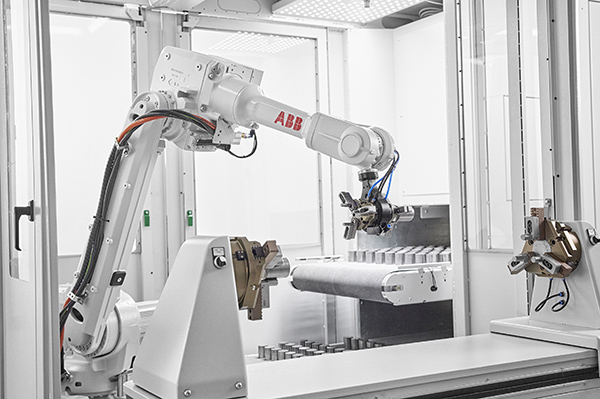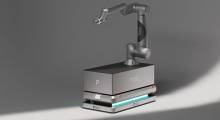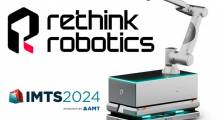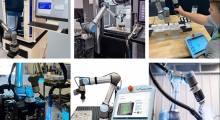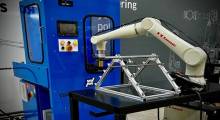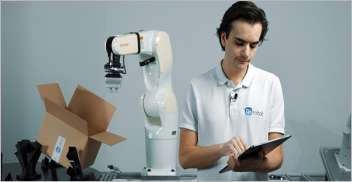ABB has launched a new family of modular machine-tending application cells for the metals industry aimed at maximizing flexibility and machine utilization while minimizing lost productivity caused by unforeseen production stoppages. Featuring six different versions, the FlexLoader M family offers a variety of ways of loading and unloading machines based on the size, shapes, and amount of the workpieces being handled. This makes it ideal for applications such as foundries and die-casting operations producing multiple types of products in varying quantities, ABB said.
“As customers demand greater variety and shorter delivery times, metals producers need to have a manufacturing process that can respond quickly and offer the flexibility to achieve high-mix, low-volume and batch size one production,” stated Andrea Cassoni, managing director for the general industry business line at ABB Robotics.
“FlexLoader M is accelerating this move by providing a single unified machine tool tending platform offering the flexibility needed for handling a wide variety of production demands, whilst also improving productivity by eliminating the time, cost, and disruption traditionally associated with production changes,” she said.
FlexLoader M includes modules, variants
The launch starts with Tray and Conveyor variants, with further variants due for release over the coming months. The FlexLoader M Conveyor uses a simple but powerful vision system to enable easy loading of workpieces with complex shapes, providing the flexibility to handle a variety of workpieces with a single cell, said ABB.
The FlexLoader M Tray is a drawer solution offering easy machine tending, according to the company. With a minimal footprint that allows it to be located almost anywhere, it can handle a variety of workpieces with variable shapes such as cubes, cylinders, plates, and pipes.
Featuring standardized interchangeable modules, the FlexLoader M offers flexibility and expandability for a wide variety of machine tending applications including lathes, mills, CNC (computer numerical control), and machining centers.
A key benefit is the ability to use the same base machine, swapping feed modules as requirements change. The FlexLoader M’s modular approach makes upgrading and scaling up easy, with just one to two days needed on average for installation and commissioning, said ABB.
All the variants can be equipped with a vision system that identifies the workpiece’s position and gives commands to the robot, machine tools, and other cell equipment such as air cleaning stations, part marking, deburring, and measurement systems. The vision system can use either a 2D camera or 3D sensor, depending on the application.
The FlexLoader M also incorporates data-based optimization features, including remote monitoring, enabling operators to monitor, troubleshoot, and optimize their robot systems. Its vision software provides added functions including condition monitoring, fleet management, and performance and order management.
ABB designs for ease of use
The FlexLoader M meets the demand from manufacturers for a simple automated solution that produces more workpieces in less time, said ABB. It claimed that the robot cells are extremely user-friendly and quick to program, even without specific robotics expertise.
A smart wizard enables new workpieces to be programmed in less than five minutes with no vision programming expertise required. Changeover between pieces which are already programmed is possible in less than one minute, making “Batch Size One” production a reality, said the company.
The simplicity of the programming software means that full operator training can be completed in less than half a day, further reducing the time needed to put the cell into operation, added ABB.
The FlexLoader M can reduce labor costs for machine tending processes by up to 90%, with one operator able to handle up to 10 cells simultaneously. The automated system delivers machine utilization of over 97%, in comparison with 40% to 60% in manually operated machines, ABB said.
The FlexLoader M will replace the company's current family of FlexLoader cells, which it said have provied reliable and predictable output. Delivering benefits including higher machine tool utilization and the opportunity for “lights-out” production through unmanned operation, FlexLoader cells can deliver a much faster return on investment and give users a sustainable competitive advantage, said ABB.
Article topics
Email Sign Up

